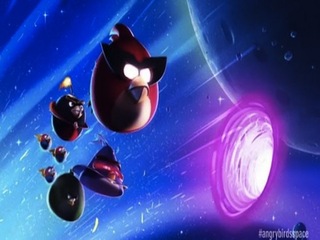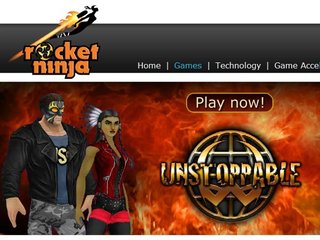
Rovio buys Futuremark game creators just to keep up
On the heels of a blockbuster debut of Angry Birds Space, Rovio picks up a whole development team

Angry Birds creator Rovio Entertainment has acquired another Finnish game developing group, Futuremark Games Studio, in talent-grab move.
Rovio, which just launched its Angry Birds Space mobile game mega-hit, is buying the game-development division of software creator Futuremark. The terms of the deal were not disclosed but it appears that only the game development team is affected and Futuremark will continue with its 3D software services.
Rovio Entertainment has always credited the company success on the strength of its team of developers and now is looking to beef up that group with another team of talented Finnish developers that can help the company keep up with its ambitious goal of releasing four more Angry Birds games this year.
The deal was designed to help Rovio create more games and allow Futuremark to focus on its its strength in 3D hardware and 3D games.

This deal is the second acquisition for Rovio in the past year. Last summer, Rovio snapped up Kombo Animation Studio for an undisclosed amount and now the company is building out the entertainment, publishing, animation and retail arms with more than 300 people in Espoo and Tampere, Finland and Shanghai.
While Rovio has been seen as a business with only one feather in its cap -- Angry Birds -- seems to be more of a money writing quill with all of the staying power and merchandising that has been capitalized on.
Last week, Angry Birds Space scored 10 million downloads in just under three days -- reaching that benchmark at three times the speed of the previous release: Angry Birds Rio.
Futuremark, founded in 1997, creates the benchmarks and PC performance tests including 3DMark, PCMark and Peacekeeper, which help millions of people measure and improve their PCs' performance for games, media, applications and the web. Futuremark has offices in Saratoga, Calif. and Helsinki, Finland.
In recent weeks there has been a lot of social and mobile gaming talk. From Zynga first launching a platform, then signing on third-party developers and then purchasing OMGPOP for $180 million, the competition is fierce.
Between mobile opportunities, Facebook, Zynga, and Web apps, the marketplace for social and mobile gaming is emmence and challenging. Because of this enviornment full of options and arms, it is very likely that bigger companies will continue to flex their strength by snapping up any established talent or games they can until something else comes in to shake up the scene. It certainly is shaping up to be a really exciting year in gaming.
Related News


Angry Birds Space rockets to 10M downloads in 3 days

Angry Birds maker raises $42 million wings

3D social game developer Rocket Ninja rakes in $7.5M

HP Startup Story: History & Lessons of Angry Birds

